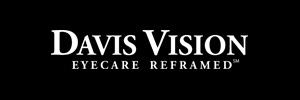Hyperopia or farsightedness is a common refractive error that affects five to 10 percent of the American population. People with this condition can see things far away clearly, but objects appear blurry when viewed up close. Prescription eyeglasses or contact lenses can usually correct this refractive error.

Continue reading to learn common signs of farsightedness and what your eye doctor can do to help.
What Causes Farsightedness?
You may develop farsightedness if you have a flat cornea or your eyeball is shorter than normal. When you have a short eyeball, light focuses beyond your retina and not on it. You are likely to be farsighted if you have a family history of this refractive condition or your parents have it.
Farsightedness causes your eyes to work harder to see objects up close. As a result, you may experience eye strain or constantly squint. Other common symptoms of this condition include blurry vision when attempting to read or see closely and headaches after performing activities that require focusing on an object up close. You may also experience pains or a burning sensation around your eyes if you are farsighted. If you notice any of these symptoms, make sure to see your optometrist immediately for proper diagnosis and treatment.
How Can Your Eye Doctor Help?
After an eye exam, your eye doctor will know if you are farsighted or not. They may also recommend getting a dilated eye exam, depending on the result of the initial tests. It will require your eye doctor to use eye drops that will dilate your pupils so they can examine the back of your eyes.
Prescription glasses and contacts are the most common ways to correct farsightedness. They alter how light passes through your eyes, so you see more clearly. Another way to treat this eye condition is through refractive surgery or LASIK. Laser eye surgery is typically used to correct nearsightedness, but it can also treat farsightedness.
Do you need new eyeglasses or a computer vision exam? Let Eyes on Norbeck handle your eye care needs. Call us at (301) 238-7199 or fill out our contact form to schedule an appointment. We serve patients in Rockville, MD, and the nearby communities.








